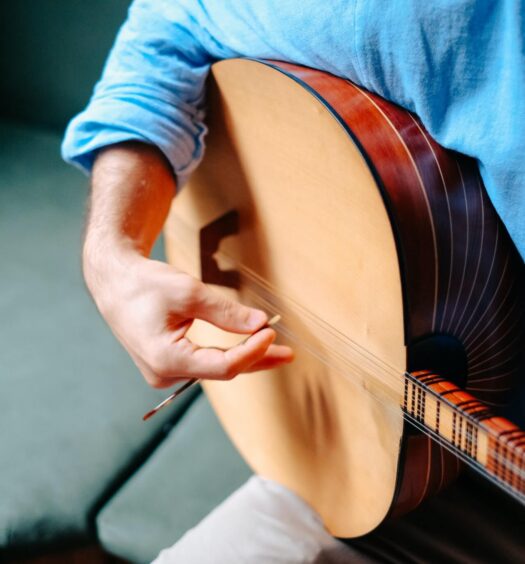Why the Word ‘Hammered’
In this brief article, we take a look at hammered dulcimer history.
The hammered dulcimer is referred to as “hammered” in reference to the small mallets (referred to as hammers) that players use to strike the dulcimer strings. Hammers are typically made of wood (often hard woods, such as maple, cherry, padauk, oak, walnut, or some other hard wood). They can be also be made of other materials (such as metal or plastic) although this is generally the exception.
For a sharp sound, the head of the hammer should be left uncovered. For a gentler sound, players often secure the head with sticky tape, leather or textured fabric. The heads of two sided hammers are generally oval or round. One side is sometimes left as exposed wood, while the opposite side might be covered in any of the above-mentioned materials.
History of the Hammered Dulcimer
The hammered dulcimer has existed in various forms for a very long period. The instrument originated in the Middle East about 900 A.D, and is related to the much older psaltery – a classical instrument in which the strings are plucked. From the Middle East, the hammered dulcimer spread across North Africa and then Europe.
The hammered dulcimer was extensively used during the Middle Ages in England, France, Italy, Germany, the Netherlands and Spain. The hammered dulcimer has classically been known by different names in different countries.
For example, the hammered dulcimer was called a a “santoor” in Iran Iraq and India, a “tympanon” in France, a “hackbrett” in Germany, a “cymbalon” in Hungary, a “yang ch’in” in China, and a “santouri” in Greece. Although it had a distinctive name in each country, it was everywhere regarded as a kind of psalterium.
Learn More
Looking to learn more about the hammered dulcimer’s history and origin? If so, check out this great book!
To learn more about the hammered dulcimer’s sibling, read up on the mountain dulcimer’s history.




